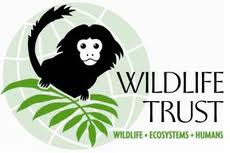 Wildlife Trust is a nonprofit organization that began in 1971 with a focus on wildlife conservation, but over the past 20 years, the organization has expanded its focus to include conservation medicine based on research about the relationships between ecosystems and animal and human health around the world.
Wildlife Trust is a nonprofit organization that began in 1971 with a focus on wildlife conservation, but over the past 20 years, the organization has expanded its focus to include conservation medicine based on research about the relationships between ecosystems and animal and human health around the world.
Throughout the past two years, the organization’s board of directors, staff and alliance members have been working on rebranding Wildlife Trust, and today, the new brand was introduced officially via a press release.
Wildlife Trust has been renamed as EcoHealth Alliance with a new website and slogan: “Local Conservation, Global Health.” The new EcoHealth Alliance logo is shown below.

The goal of the rebranding effort is to more accurately present the organization’s dual focus on local wildlife conservation and it’s ongoing leadership in the area of conservation medicine and the relationships between animal ecosystems and human health. The effort won’t stop with a new name, logo and website. EcoHealth Alliance is also hiring new scientists, forming new alliance partnerships, and developing more programs to support the brand’s dual focus.
As the EcoHealth Alliance website explains:
“EcoHealth Alliance works at the intersection of ecosystem, animal and human health through local conservation programs and develops global health solutions to emerging diseases.”
Furthermore, EcoHealth Alliance is marketing its new brand focus with messaging that positions the organization as being on, “the forefront of informing the public, businesses, and the scientific community about emerging diseases, including potential pandemics.”
If it was the organization’s goal to shift its brand focus, then one would think that they made a wise strategic move in rebranding to better promote their efforts related to health and medicine. To the average individual, the Wildlife Trust was very much rooted in wildlife conservation with the masses knowing very little about the organization’s other priorities. The new branding puts health and medicine center stage with wildlife conservation taking a back seat. It appears that this was the intent of the rebranding effort, and if that’s true, then the rebranding should work well.
What do you think? Does the rebranding work? When you look at the new logo and hear the new brand name, do you still think of wildlife conservation or has the entire brand promise shifted with this rebranding effort? I’m leaning toward the latter. I wonder if that was truly the organization’s intent.
Your thoughts?
Susan Gunelius is the author of 10 marketing, social media, branding, copywriting, and technology books, and she is President & CEO of KeySplash Creative, Inc., a marketing communications company. She also owns Women on Business, an award-wining blog for business women. She is a featured columnist for Entrepreneur.com and Forbes.com, and her marketing-related articles have appeared on websites such as MSNBC.com, BusinessWeek.com, TodayShow.com, and more.
She has over 20 years of experience in the marketing field having spent the first decade of her career directing marketing programs for some of the largest companies in the world, including divisions of AT&T and HSBC. Today, her clients include large and small companies around the world and household brands like Citigroup, Cox Communications, Intuit, and more. Susan is frequently interviewed about marketing and branding by television, radio, print, and online media organizations, and she speaks about these topics at events around the world. You can connect with her on Twitter, Facebook, LinkedIn, or Google+.
I joined an organization interested in preventing extinctions. That no longer seems to be the organization’s primary purpose.. The new purpose may be worthy, but i’t not what I signed up for after Mr. Durrell’s lecture.
I will contribute only half of my usual this year, and if I find a better place for the money, that will be my last gift to Ecowhatsit.